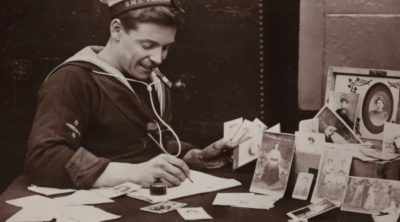The best fiction books to read excite our imagination as well as tell us truths about ourselves. Even fiction that takes us to fantastical new worlds often shows us how we live and think in our own. Just because fiction concerns people and places that don’t exist, many people think of it as childish or non-informative. This couldn’t be further from the truth about fiction!
Here are 5 fiction books that not only create an interesting fictional world but also teach us about the real one. These books do not limit their imagination to pure fantasy. They remind us of ourselves in order to teach us how we look at the world. Even if we disagree with them, we can still learn.
Fahrenheit 451 by Ray Bradbury
Fahrenheit 451 details a mundane dystopia. Rather than a war with space worms or galactic terrorists, this book relates a smaller, down-home dystopia. In a world of media information control, books are no longer legal. The only legal media comes from the daily broadcasts that people absorb dutifully and non-suspiciously. A man who finds a book has an independent thought for the first time and finds that he no longer belongs in his own world.
Fortunately, the book’s florid prose is as good as ever. Unfortunately, it’s never been more relevant.
Emma by Jane Austen
Whether you just saw the fantastic 2020 film adaptation or just want to read something light, Emma is shorter than Austen’s other works. However, it’s no less flowery and fun! The self-obsessed matchmaker Emma is one of literature’s most delightfully flawed heroines. It never ceases to be fun to watch her accidentally find love for herself.
The Moon is a Harsh Mistress by Robert A. Heinlein
Heinlein is one of science fiction’s modern-day fathers. The Moon is a Harsh Mistress shows his science and his political side with the story of a lunar penal colony. A man and a computer re-evaluate what it means to be free after generations of servitude on a colony meant to contain their parents’ crimes. It ends up being a treatise on the American Constitution more than anything else.
The Fountainhead by Ayn Rand
Ayn Rand is something of a mystery to the modern-day. Equally described as a genius philosopher and a demented cult leader, her books have fallen off the reading list everywhere. As an American philosopher, she has a lot to say, even if many won’t agree with most of it.
However, we are not the world of Fahrenheit 451, after all. Books we disagree with are even more important to read – that’s how we grow. You may find yourself understanding the artistic treatise of The Fountainhead, which deals not so much with Capitalism as with freedom of expression. It will be an interesting read, no matter what you take from it.
The Last Unicorn by Peter S. Beagle
The Last Unicorn is sort of a fairytale and thus, sort of a kids’ book. However, it’s more than that. Beagle breaks down the symbolism of our society, our genders, how we tell stories, how we are and hope to be. There’s a lot to unravel in this book, though it’s small and unassuming.
Fiction Books to Read: The Takeaway
The best fiction books to read may not be the ones you agree with. They may communicate new ideas, weave fantasies, or force you to understand yourself better. That’s how we grow! Use this brief list as a launching pad for your spring reading this year.


